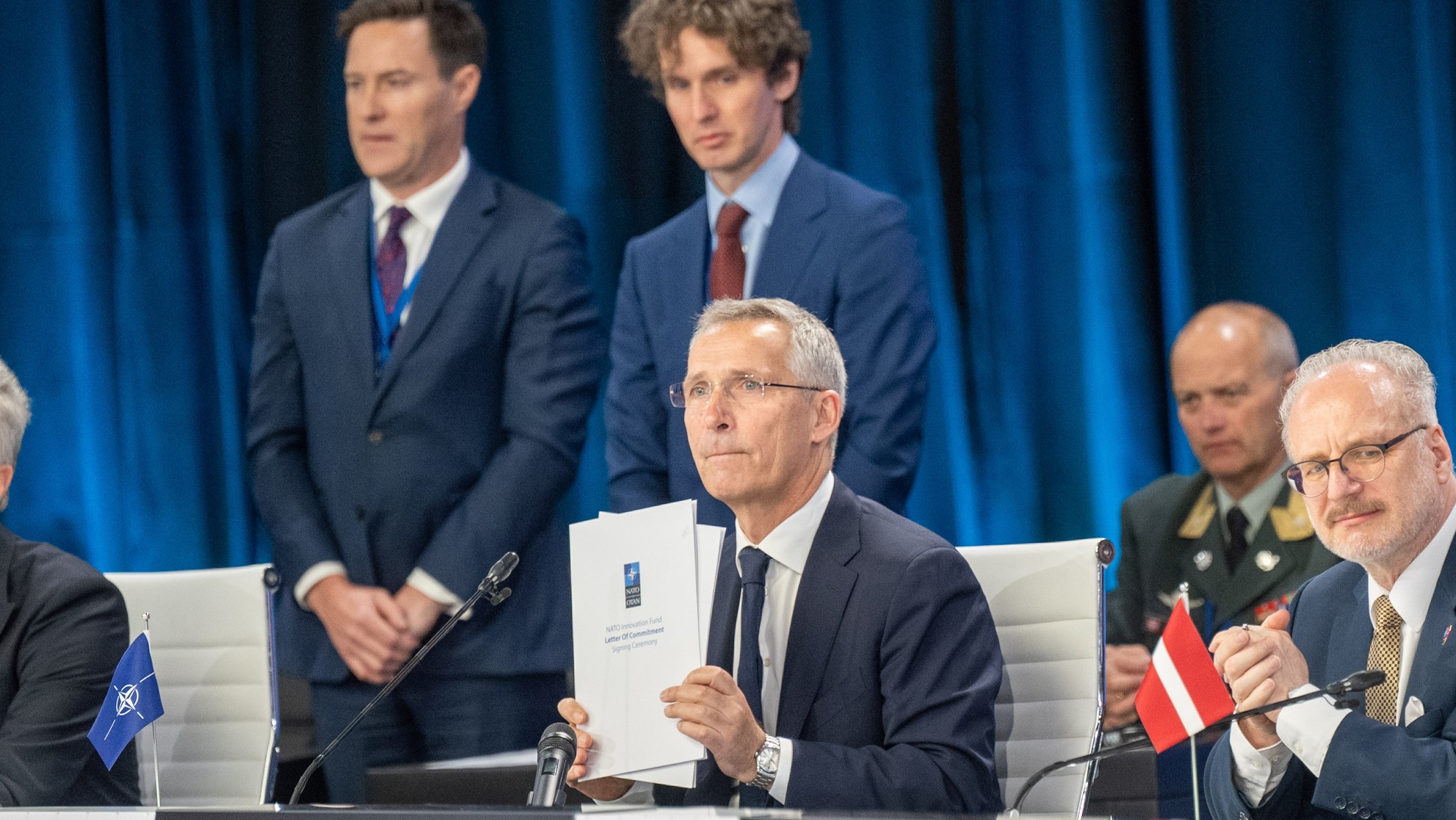
NATO Secretary General Jens Stoltenberg holds the NATO Innovation Fund Letter of Commitment. (NATO)
WASHINGTON: NATO leaders this week launched a new innovation fund and defense innovation accelerator initiative in an effort to stay ahead of technological advancements and cyber challenges posed by Russia and China.
Jens Stoltenberg, NATO secretary general, said today during a signing ceremony at the close of the alliance’s Madrid Summit the first-of-its-kind fund will invest €1 billion in startups and deep-tech funds across 22 participating nations over the next 15 years.
“Maintaining our technological edge has helped to keep our alliance strong and our nations safe for more than 70 years. But today, nations that do not share our values, like Russia and China, are challenging that lead in everything from artificial intelligence to space technologies,” he said. “It is essential that we do everything in our power to remain at the forefront of innovation and technology.”
Belgium, Bulgaria, the Czech Republic, Denmark, Estonia, Germany, Greece, Hungary, Iceland, Italy, Latvia, Lithuania, Luxembourg, Netherlands, Norway, Poland, Portugal, Romania, Slovakia, Spain, Turkey and the United Kingdom all signed on to the fund.
The fund is meant to work alongside the Defense Innovation Accelerator for the North Atlantic (DIANA), mentioned in the 2022 NATO Strategic Concept [PDF], which brings together governments, the private sector and academic to bolster its technological edge.
RELATED: US Increasing Troop Presence In Europe, While New NATO Strategy Eyes China
DIANA will support the development of dual-use emerging technologies, including AI and quantum-enabled technologies. During this week’s summit, allied leaders pledged that innovators will be provided access to more than 60 test centers across Europe and North America for DIANA.
DIANA “will support NATO’s efforts to boost interoperability and ensure that every Ally has access to cutting-edge technological solutions for military needs,” according to a June 29 White House fact sheet. “The U.S. will contribute by facilitating access to U.S. entities, such as test centers and accelerator sites, drawn from across the extensive and diverse U.S. innovation sector.”
Also stated in the alliance’s new concept, the first time that document has been updated since 2010, are plans to enhance cybersecurity, an area that is “contested at all times.” The concept warns that a single or cumulative set of malicious cyber activities could reach the level of armed attack.
RELATED: Allied Cyber Authorities Warn ‘Evolving Intelligence’ Points To Incoming Russia Cyber Attacks
“We recognise the applicability of international law and will promote responsible behavior in cyberspace and space,” according to the strategy. “We will also boost the resilience of the space and cyber capabilities upon which we defense for our collective defense and security.”
Leaders this week established a virtual rapid response cyber capability to respond to malicious cyber activities. The rapid response cyber capability was built on lessons learned from the ongoing conflict in Ukraine, the White House stated. To that point, the US “will offer robust national capabilities as part of this support network.”
NATO has also decided on a “strengthened” package of support to Ukraine meant to accelerate the delivery of non-lethal defense equipment, improve its cyber defenses and support modernizing its defense sector, the Madrid summit declaration states.
Textron, Leonardo bank on M-346 global experience in looming race for Navy trainer
“The strength we think we bring is that [the Navy is] going to go from contract to actually starting to turn out students much quicker than any other competitors,” a Textron executive told Breaking Defense.



























